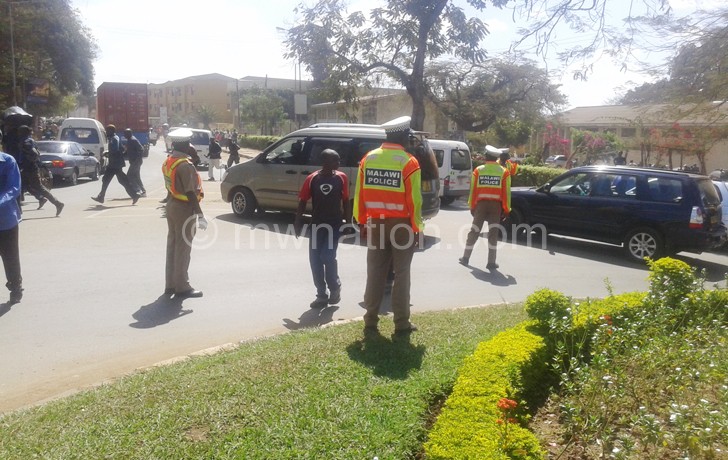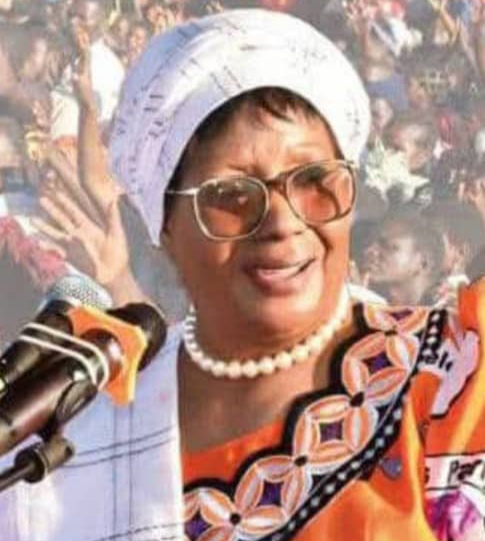University of Malawi’s Chancellor College-based Centre for Social Research (CSR) released its Governance and Corruption Survey which, as some would have predicted, rated the Department of Road Traffic and Safety Services (DRTSS) and the Malawi Police Service (MPS), particularly traffic police officers, as the most corrupt of all public institutions.
“The study findings actually represent true facts on the ground and the traffic police officers are not doing enough to protect motorists and all road users alike. Some traffic police officers are indulging in highest levels of corruption, leaving citizens vulnerable and insecure.

“This has resulted in the lack of trust in the police by the citizens. It is retrogressive and it is not in good taste with modernity for officers to beg so openly as they do,’’ said Lucky Mbewe, spokesperson for the Civil Society Coalition.
He says people have completely lost trust in the police to such an extent that citizens do not differentiate between an officer and a criminal.
Mbewe observes that government is not supportive of the plans and strategies set up by the police establishment and leadership to crack down on the vice.
“I feel there is lack of political will to seriously curb the problem. Government must ensure that these officers are motivated so that they work without thinking of receiving bribes or engaging in corrupt practices.
“Let them receive good salaries and in time [because] doing so will keep them from committing such crimes as bribery or corruption. Otherwise, how can an officer refuse a K10 000 bribe when they don’t have food to feed children at home? Police corruption has a long history and cannot be rooted out so easily, especially if government remains uncommitted towards improving officers’ living and working conditions,” he adds.
Mbewe notes that this is a glaring failure and lack of oversight, complainant mechanisms and internal controls and calls on government to seriously start investigating or even removing all officers who indulge in and tolerate extortion.
Mbewe adds that the situation is worsened by senior police officers who are into the transport business.
“It is tricky because some senior officers are minibus owners and they tend to encourage their drivers not to adhere to laid down laws. When fellow drivers see their colleagues go scot free with traffic offences, they are forced to bribe officers so that they too are let go.
“But it is quite unfortunate because these drivers are unruly since they know that their bosses are connected to the system and they do not mind breaking traffic laws and regulations. They have the tenacity to describe their minibuses ‘ma bus aku mpanda’ which can move on the roads without proper and necessary documents.”
He says when, in rare cases, these minibuses are impounded they are released back on the roads within minutes, which defeats the widely accepted notion that nobody is above the law regardless of the status in society.
In an earlier interview, chairperson of Parliamentary Committee on Defence and Security Enoch Chihana blamed this problem on what he called “wishy washy” recruitment process.
“The recruitment process is highly nepotistic and too short for citizens’ liking. The process and period should be adequate and trustworthy, but unfortunately there is a lot of corner cutting which is self-destructive. The police should ensure that all recruits have a calling.
“It is not proper to recruit someone who seemingly has no passion for the job and this explains why such people can easily engage in corrupt practices. Such officers can even encourage citizens to use short cuts and beat established procedures,” he says.
A Lilongwe-based minibus driver, Jazelem Kamba, states that departmental cover ups are another factor encouraging corruption among traffic police officers.
“Traffic police work offers officers a host of freedoms which they easily abuse and mostly with the full knowledge of their superiors. There is a stronger need to encourage accountability and transparency so that no cover ups should occur.
“The fact remains that whenever an officer lowers ethical standards it affects the whole department and compromises law enforcement abilities and competence. It is a shame that the practice is endemic,” he explains.
Kamba also observes that most traffic offences attract huge sums of money and this forces the offenders to negotiate for a reduction.
“We require effective and strong traffic enforcement laws which are the most important requirement for road safety otherwise increased road accidents will continue to be the order of the day,” he says, advising the DRTSS to rope in psychologists.
“This problem is a complex phenomenon that has no single straight answer. Even though the best way is hold officers accountable, it can also be useful to engage the services of psychologists. Senior police officers should be taught how to recognise early warning signs like mood swings and lateness because these show mental problems which can lead to one into engaging in corrupt practices or bribery,” says Kamba.
But National Police spokesperson Rhoda Manjolo said in an interview on Wednesday that “corruption involves two people and the revelations mean that even those people who bribe our officers are also corrupt”.
“I am not trying to defend the traffic police officers, but people should demand government receipts every time a police officer asks them to pay for an offence because that will ensure that the money goes to government and eventually help everyone in the country,” she said, urging both police officers and ordinary citizens to change their mind sets toward giving and receiving bribes or indulging in corrupt practices




